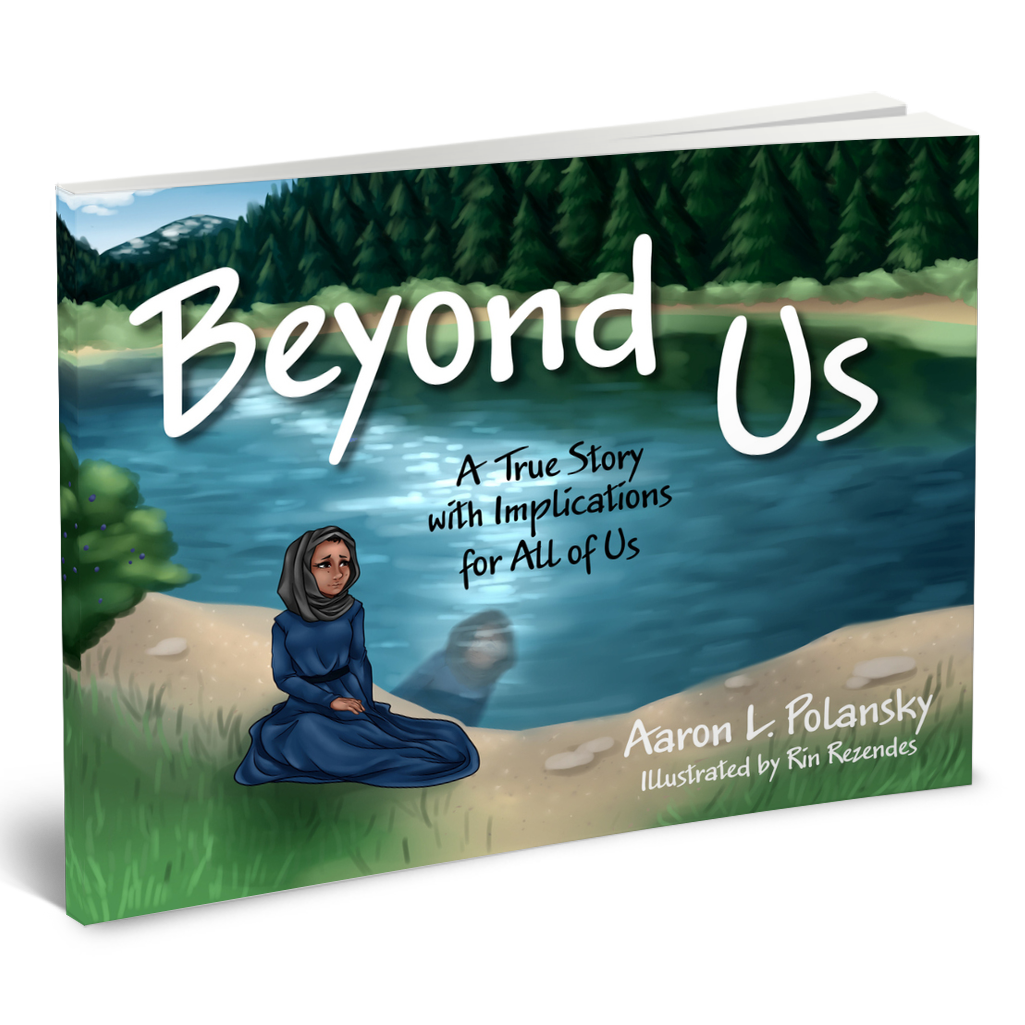This week's guest post is brought to you by Aaron Polansky author of Dolphins in Trees and the newest release, Beyond Us!
Keep reading to learn incredible ways to utilize his new picture book Beyond Us in your learning setting!
Guest Post by Aaron Polansky
The world is an unpredictable place in 2019. I was recently working on a project with a couple of close colleagues. The truth is, they were working hard and I was hardly working. I was in a state of “overwhelmed” with all that was going on. The title of our presentation: Building Highly Effective Teams to Drive Change in Your Schools. At the time, I felt like the ineffective teammate bringing down the group. I wasn’t in the proper headspace and felt comfortable enough to share it with both of them. I was dismissed from my responsibility at the moment with love and nurture. I returned to the drawing board this morning with my contributions before crafting this blog article.
In our research, an article from the New York Times titled, “What Google Learned From Its Quest to Build the Perfect Team” kept appearing. The article puts a strong emphasis on the importance of psychological safety and equal voice. This comes as no surprise, given the alignment of these principles with Maslow’s Hierarchy of Needs. (insert rewind sound from an 1980’s mixtape)
Did you hear that? Psychological safety and equal voice. Both are imperative focal points for all educators as we think about the well-being of our students and colleagues. Our students are part of our team. A teammate is defined as one of two or more people working together toward a common outcome. How do we ensure opportunities to maximize the productivity of our school culture by minimizing threats?
Have you ever had a less-than-perfect morning and attempted to get on with your day, only to find yourself preoccupied with what was on your mind? Imagine our students and the barriers they are faced with. Some with no food in their refrigerators; some in single-parent homes; some without parents; and so much more.
When (our) brains perceive a threat, the Reticular Activating System of the brain lets in only what is perceived as relevant to the threat. (Willis, “Want Children to Pay Attention? Make Their Brains Curious,” Psychology Today, 2010) When stressors are present, our students are more likely to shut down. Threats trump learning and make it difficult for our students to focus on what is truly important.
Words change worlds. An impulsive Twitter finger can rewind decades of progress. We have work to do as educators, and it’s not to teach our students the importance of filling in circles for standardized tests. Let’s stop patting ourselves on the back and “mount up” (thanks Hamish) for some difficult conversations. Perhaps progress hasn’t been what it needs to be and we aren’t as far along as we thought. It’s typical for people to celebrate their successes and see what they want to see. The same holds true with regard to judgement and first impressions. If your school is the exception and you have already taken the deep dive into difficult discussions, please accept my apologies and share your approach with the rest of us.
Implicit bias is real. Racism, religious persecution, transphobia, homophobia, classism, and sexism are just a few of the difficult topics we struggle to discuss in depth with the malleable minds in our care. Beyond Us was written in an effort to open minds, open hearts, and open the doors to difficult conversation. The story was illustrated by a student from the front lines who has lived in fear, shared his hurt, and modeled vulnerability with hopes that the world Beyond Us will benefit.
Mixtapes and love songs have become a thing of the past. Our current climate is lacking eye contact and overflowing with iPhones. YouTube and Twitter can’t be our moral standard. We must create opportunities for people, of all ages, to be their authentic self and rebrand content for our youth on social media. If a Fortnight Dance and Flossing can go viral, so can kindness.
I sat next to my dear friend Marty at the National Principals Conference this past week in Boston while we watched Brian McCann on his 2019 No Apologies Tour. Marty said to me, “Aaron, I wasn’t sure whether to wear a tie or not to the conference. This morning at breakfast I spilled my coffee and luckily my tie caught everything. The decision was made for me.”
I had the same thought. Only Marty’s more professional. I thought, “Shorts and a t-shirt or should I wear a collared shirt? Tucked or untucked? Sandals or sneakers?”
Grown men over forty, thinking about the dilemma of tie or no tie, collar or no collar, sandals or sneakers. Imagine that. How do you think our students feel about being their authentic self? It’s our job to build them up. It’s our job to provide them with the confidence to let their true self shine. I’m not talking about the stereotypically confident students in leadership roles. I’m talking about all students. How do we help all students believe in themselves?
We help them find their strengths, their passion, and that fire.
“Where does fire come from? Fire comes from focusing on our strengths, not our weaknesses. When you figure out what you do well and what your strengths are, it’s like a dog with a tennis ball. A dog will go through hell to get their tennis ball.” (Dan Rockwell, Leadership Freak Blog,
Beyond Us was the tennis ball for Rin Rezendes and to be quite honest, for me. A mix tape can touch the heart of a special someone. Kindness takes a lot less time and can change the world. Here are some ways you can use the book to open minds, open hearts, and open discussion.
- Pick an illustration from the book and ask your students to write a short story based upon the illustration
- In the story, the daughter was able to support the artist because she was aware of his passion for graphic design. Encourage your students to interview several students they don’t know and ask what they are passionate about. As a follow-up, ask your students to establish a mechanism for sharing their passion with others.
- Use this book as an introduction to the importance of finding your strengths and passions. Cancel final exams and use the last week of school to allow your students to teach others or work on passion projects. For more information on how to make this happen, contact Brian McCann on Twitter at @casehighprinc.
- Use Beyond Us to kick off a week of Random Acts of Kindness. Reach out to Tim Fauth (@tjfauth) of DoKindInc.com to see if your school can earn a financial reward for your efforts.
- Choose the father, the daughter, the artist, or a reader and write a thank you note to one of the characters using the contents of the story as your guide. Make up additional details to add a creative structure to the story. Any of the characters can show appreciation for the other.
- Recognize and illustrate the circle of giving that exists within the story.
- Choose one of the characters from the book and write a story about the positive impact the book has had on you. Site historical examples of individuals who have overcome a struggle to support your narrative.
- Have a discussion about our differences and how they make us unique.
- Act out the story as a readers’ theatre.
- Create an animated short film of the story.
- Each of the characters identified in the narrative in the book have shared a true story. Write a story about a struggle you have faced and how others have helped (or could help you) to overcome this struggle.
- Write a thank you note to someone who has positively impacted your life. Let them know about the difference he/she has made.
- Consider what would have happened if the father never talked to his daughter; if the daughter never gifted the markers; or if Rin never illustrated the book. Identify a list of 10 little things that can make a big difference in your school. Complete these 10 actions over the course of a week. Write about the experience and the impact it had on you and on others.
Thank you, Aaron!
Wow! What an incredible post, Aaron!
If you like what you've read, please follow Aaron on Twitter @aaronpolansky and visit his website AuthentricitySpeaks.com
Don't forget to click the link below and learn more about Beyond Us.
A True Story with Implications for All of Us
Connection. Respect. Love.


